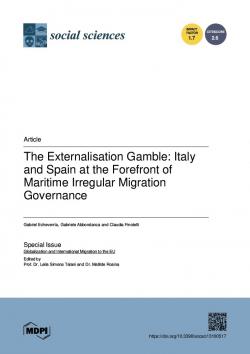The Externalisation Gamble: Italy and Spain at the Forefront of Maritime Irregular Migration Governance

Irregular migration is rapidly becoming a permanent feature of the twenty-first century. Amid the European “refugee crisis”, Italy and Spain represent two major destination countries that are affected by substantial irregular flows. Despite this comparable condition, and notwithstanding the significance of their relevant policies, they have rarely been compared, a gap in the literature that this research addresses through a novel comparative analysis of their irregular migration governance. Following a broad contextualisation of destination countries’ strategies against irregular migration, this article delves into the two case studies’ external dimension of control policies from the 1990s to 2024 inclusive. In doing so, it assesses the nature of their foreign policy on irregular migration, their specific measures, and their geographical scope. It finds that there is a noticeable convergence towards readmission measures and externalisation, along with the growing use of informal deals. In terms of differences, the article highlights Italy’s much higher number of irregular arrivals compared to Spain, and the impact that this has had on domestic debates, priorities, and relevant policy formulation processes. As a novel investigation of two influential case studies, this article therefore contributes to the literature on both externalisation and Italy’s and Spain’s foreign policy.
-
Details
(with Gabriel Echeverría, Claudia Finotelli) in Social Sciences, Vol. 13, No. 10 (October 2024), Article 517 -
ISBN/ISSN/DOI:
10.3390/socsci13100517


